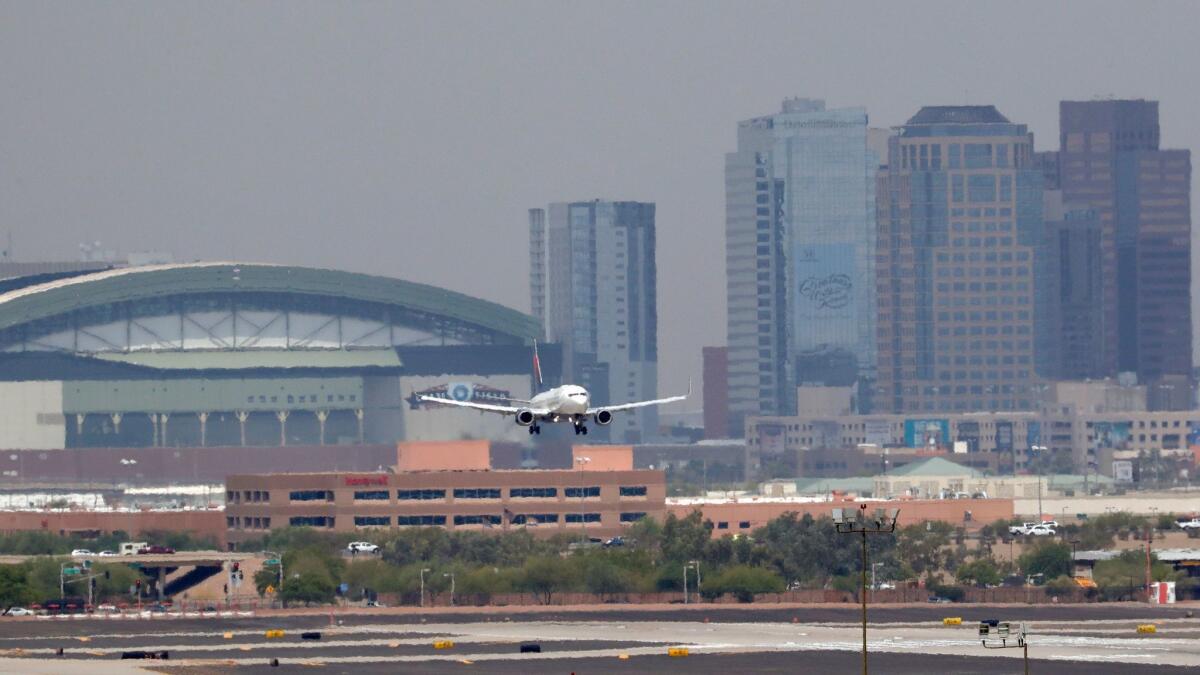Climate change may make it too hot to fly, study says

- Share via
A spike in summer temperatures in Phoenix last month forced American Airlines to cancel dozens of flights because some planes used by the carrier’s regional airline could not operate in such extreme heat.
Airlines can expect to face such problems more often because of extreme temperatures caused by global climate change, according to a study from Columbia University.
The study, which appeared Thursday in the journal Climatic Change, estimated that 10% to 30% of fully loaded planes may have to remove fuel, cargo or passengers to fly during the hottest parts of the day or wait for temperatures to drop.
As temperatures rise, air becomes less dense, which means that aircraft wings generate less lift as a plane gains speed along a runway, experts say.
The study said average global temperatures have increased nearly 1.8 degrees Fahrenheit since about 1980 and will rise by as much as 5.4 degrees by 2100. Heat waves will become more prevalent, causing more problems for airlines, according to the study by Columbia University doctoral student Ethan Coffel and climatologist Radley Horton.
American Airlines canceled 60 flights from June 19 through June 21 when temperatures at Phoenix’s Sky Harbor International Airport rose as high as 119 degrees. The planes, Bombardier CRJ aircraft operated by regional carriers working with American Airlines, are designed to operate at temperatures no higher than 117.8 degrees.
American Airlines said it rebooked the passengers from the canceled flights without charging any extra fees. The Fort Worth-based carrier also contacted passengers on flights scheduled to take off during the hottest times of the day to warn them about the likelihood of cancellations.
To read more about the travel and tourism industries, follow @hugomartin on Twitter.
ALSO:
Another casualty of climate change: A good night’s sleep
Gov. Jerry Brown says the existence of humanity rests on his climate change deal
California lawmakers delay climate change vote amid push for affordable housing
More to Read
Inside the business of entertainment
The Wide Shot brings you news, analysis and insights on everything from streaming wars to production — and what it all means for the future.
You may occasionally receive promotional content from the Los Angeles Times.











